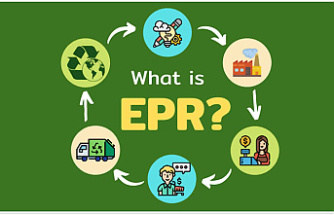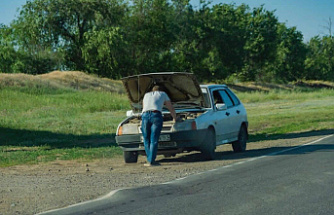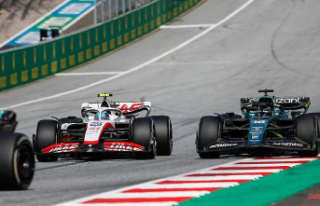The EU Parliament has decided: In the future, investments in gas and nuclear power plants will be considered sustainable. In an interview with Capital.de, Christian Klein, an expert in sustainable finance, explains what this means for the business with green financial products.
In the future, nuclear energy and gas will be considered sustainable according to the EU taxonomy. What does this new definition change about the financial flows for sustainable investments?
Christian Klein: Not much will change at first. The taxonomy is intended to create more transparency for investors and investors who want to invest green and to show what assets are suitable for this. Everyone decides for themselves where the money goes. And since it's difficult to get across Germany to invest in nuclear energy now, that won't happen either.
Does that mean our green bonds don't end up financing French nuclear power plants?
It can be assumed that there will be green bonds for nuclear energy. And France in particular will spend them to replace the ailing nuclear power plants with new ones. But investors also see exactly where their money is going. Many providers are also aware of how sensitive investors could be to this. I think the risk of unconsciously investing in French nuclear power plants, for example, is manageable.
However, many ESG funds have a certain tolerance and invest a small percentage in non-sustainable companies. How will fund providers use this leeway if nuclear energy and gas are no longer included?
Nuclear power was already an exclusion criterion for many funds. The new classification in the taxonomy will not necessarily change that. Due to the media attention that the topic has received, many suppliers are now even likely to deliberately point out that they do not use nuclear energy - also because they have to expect customers to specifically ask about it.
What does this mean for private investors: How do I ensure that my ESG fund does not invest in gas and nuclear power?
From August, financial advisors will have to talk to their clients about sustainability goals when investing. Investors can decide, among other things, how taxonomy-compliant they want to invest and which exclusion criteria should apply. In addition, the Disclosure Regulation requires sustainable funds to explain why they are sustainable. There are also seals, such as that from the Forum for Sustainable Investments (FNG), which evaluate financial products according to sustainability criteria.
Some voices consider the decision to have softened the taxonomy. How reliable is it still as a benchmark for green investments?
We must distinguish between the tool and how it is used. As of today, the taxonomy is a tool to create more transparency for investors. At the same time, tough regulations could also be enforced. If the EU Commission is serious about fulfilling the Paris Climate Agreement – and I assume they will – then we could see that in the future. The political decision now, on the other hand, is a communication disaster that has done considerable damage to the reputation of the taxonomy.
In what way?
The mindset of taxonomy is different than what we are used to. It does not divide companies into sustainable and non-sustainable, but their activities when they exceed or fall below certain thresholds. If you only look at the CO2 consumption, nuclear energy and gas would be below the limit values. However, the activity must not harm other criteria at the same time, such as the circular economy. There is a clear contradiction here. However, according to the Taxonomy Ordinance, many additional conditions must be met before gas and nuclear energy are considered sustainable. Only very modern and efficient systems will be able to fulfill this. So the new definition is definitely stricter here than is currently being presented.
So the debate surrounding the decision is more like "much ado about nothing"?
The noise is justified, after all, gas and nuclear energy were not mentioned in the original taxonomy. The fact that they are now considered sustainable is due to a political process in which certain countries asserted their interests. However, one should not throw the baby out with the bathwater and discard taxonomy. Because it has great potential to make a difference.
At the intergovernmental level, however, there has been considerable crunching within the EU. Has a common EU climate policy possibly failed?
It did not fail, because the EU Commission is really serious about halting climate change. However, EU climate policy has always been very strenuous because it often affects national interests. This can be seen very well in France's efforts in the case of nuclear energy. Why go to so much effort when it comes to a green niche with a market share of just over ten percent? It is therefore reasonable to assume that at some point there will be preferential financing conditions for activities in the taxonomy - and thus now also for modern forms of nuclear energy. Since the vast majority of economic activities considered in the taxonomy can really help ensure that our world remains livable, I am optimistic that we are ultimately on the right track. This also applies to climate policy.
Christian Kreder spoke to Christian Klein
The interview first appeared on Capital.de












